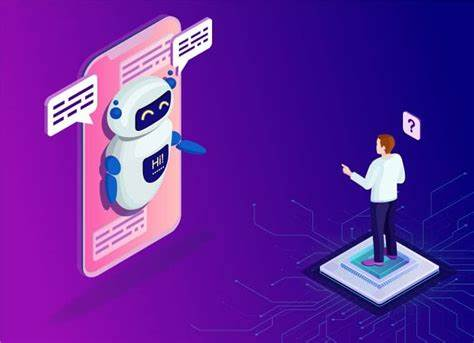AI-Powered Chatbot Development: Revolutionizing Communication and Unlocking Business Potential
Introduction:
In recent years, artificial intelligence (AI) has emerged as a game-changer in various industries, transforming the way businesses operate and interact with customers. One significant advancement in this realm is the development of AI-powered chatbots. These intelligent virtual assistants leverage natural language processing and machine learning algorithms to simulate human-like conversations. With their ability to understand and respond to user queries, chatbots have become indispensable tools for businesses across the globe. In this article, we will explore the world of AI-powered chatbot development, its potential applications, and how you can monetize your skills in this field.
The Rising Demand for AI-powered Chatbots:
As technology continues to advance, consumers expect quick and personalized responses to their inquiries. Traditional methods of customer support, such as phone calls and emails, often fall short in meeting these expectations. This is where AI-powered chatbots step in, offering businesses a scalable solution to address customer queries in real-time, 24/7. These chatbots can handle a wide range of tasks, including answering FAQs, providing product recommendations, processing orders, and even conducting simple transactions. By automating routine interactions, chatbots free up human agents to focus on more complex and high-value tasks.
Developing AI-powered Chatbots:
Building an AI-powered chatbot involves several key steps:
1. Define the Purpose: Clearly identify the goals and objectives of the chatbot. Determine the target audience and the specific tasks it should perform, ensuring it aligns with your business objectives.
2. Design Conversational Flows: Create a conversational flow that guides users through the interaction. Define potential user inputs, anticipate different responses, and design appropriate responses for each scenario. Natural language understanding (NLU) models are employed to interpret user queries accurately.
3. Machine Learning Training: Train the chatbot using machine learning algorithms. Use labeled data to teach the model how to respond to different user inputs accurately. Continuously refine and optimize the model to enhance performance over time.
4. Integration: Integrate the chatbot into your preferred messaging platform, website, or mobile app. Ensure seamless connectivity and smooth user experience across multiple channels.
5. Testing and Deployment: Thoroughly test the chatbot to identify and fix any issues or bugs. Deploy the chatbot in a controlled environment and gather feedback to further enhance its performance and capabilities.
Monetizing AI-powered Chatbot Development:
As the demand for AI-powered chatbots continues to rise, there are several ways to monetize your skills in this field:
1. Chatbot Development Services: Offer custom chatbot development services to businesses looking to enhance their customer support or automate various processes. Tailor chatbot solutions to specific industries or niche markets to differentiate yourself from competitors.
2. Chatbot Marketplace: Create pre-built chatbot templates or frameworks and sell them on marketplaces dedicated to AI-powered solutions. These templates can serve as a foundation for businesses seeking a quick and cost-effective chatbot implementation.
3. Chatbot Maintenance and Support: Once you have developed and deployed a chatbot, offer ongoing maintenance and support services. This includes monitoring performance, optimizing chatbot responses, and updating the system to accommodate evolving customer needs.
4. Chatbot Analytics and Insights: Leverage the data collected from chatbot interactions to provide valuable insights to businesses. Offer analytics services to help clients understand user behavior, identify pain points, and optimize their overall customer experience.
5. Consulting and Training: Share your expertise by offering consulting services to guide businesses in leveraging chatbot technology effectively. Conduct workshops and training sessions to educate organizations on best practices for chatbot implementation and management.
Conclusion:
AI-powered chatbot development has revolutionized the way businesses interact with their customers. These intelligent virtual assistants provide round-the-clock
thank you for reading follow my social media
instagram: ‣𝙋𝙖𝙡 𝙟𝙖𝙘𝙤𝙗‣ 𝓚𝓲𝓷𝓷𝓾 (@jacob_vishwa143) | Instagram
facebook: Vîšhwä Kãļýâň | Facebook
youtube: (366) jacob vishwa143 - YouTube

Comments
Post a Comment